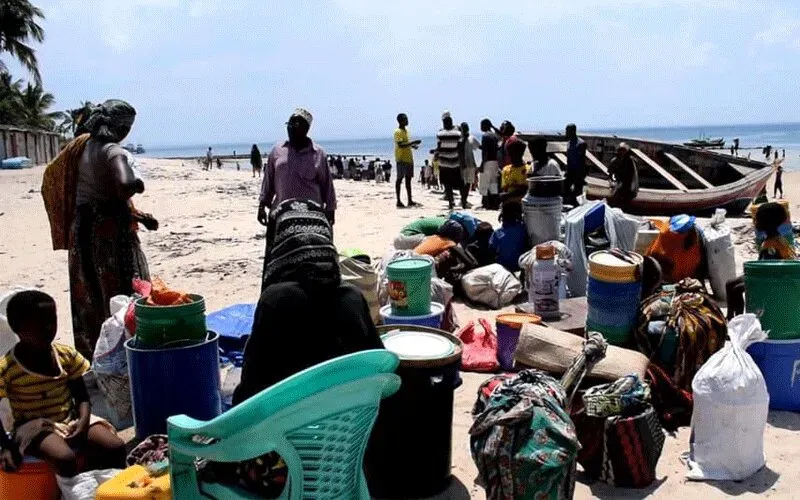Pemba, 31 August, 2022 / 8:43 pm (ACI Africa).
The Catholic Church is promoting fraternity between Internally Displaced Persons (IDPs) and locals in Northern Mozambique, the leadership of the Dennis Hurley Peace Institute (DHPI) has said.
In an interview with ACI Africa, DHPI Director, Johan Viljoen, attributed the tensions at Corrane resettlement site to differences in the standard of living, with IDPs being “better off” considering the support the United Nations High Commissioner for Refugees (UNHCR) and other aid agencies avail to them.
“At the moment you have a situation where the displaced are better off than the local community, and these tensions are rising,” Mr. Viljoen told ACI Africa Monday, August 29.
The Director of the peace entity of the Southern African Catholic Bishops’ Conference (SACBC) explained, “The UNHCR and other non-profit organizations provide monthly food parcels for the IDPs and have built four room houses and football fields for the IDPs in Corrane resettlement, and just outside the site, the local community is starving and living in huts.”
It is against this backdrop that “the Church is in the forefront of actually promoting and implementing a spirit of solidarity and brotherhood among IDPs and locals to reduce tensions.”








